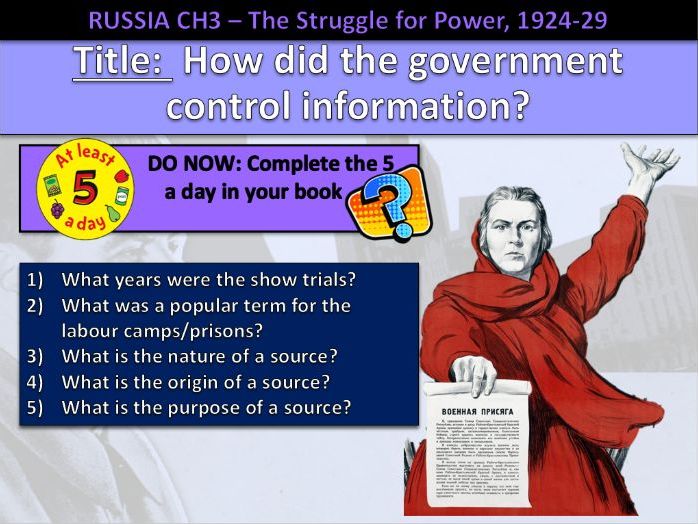

This fully resourced lesson is part of Key Topic 3 of the Edexcel 9–1 GCSE History course on Russia and the Soviet Union (1917–41). It focuses on how Stalin controlled information through propaganda, censorship, education and the media, helping students understand how the regime shaped public opinion and reinforced the cult of personality.
No textbook is required — all resources are included and designed to maximise engagement, discussion and exam-readiness. The lesson blends accessible explanation with source-based tasks and evaluative questioning to stretch students at all ability levels.
What’s Included:
Fully editable PowerPoint presentation with sequenced activities
Clear learning objectives linked directly to the specification
Introduction to the different methods of government control, with contextual examples
Visual and written sources to explore how propaganda and censorship operated in practice
Focused case study on control through education and youth organisations
Class discussion tasks and source inference questions to build analytical thinking
Integrated support for 8-mark exam responses
Stretch tasks encouraging comparison and evaluation of different control methods
This lesson supports secure knowledge development and lays the groundwork for extended written answers. Whether delivered in-class, for homework, or for revision, it ensures students understand both how and why Stalin’s regime manipulated information during the 1930s. All materials are stand-alone and ready to use with no additional planning or textbooks required.
Something went wrong, please try again later.
This resource hasn't been reviewed yet
To ensure quality for our reviews, only customers who have purchased this resource can review it
to let us know if it violates our terms and conditions.
Our customer service team will review your report and will be in touch.